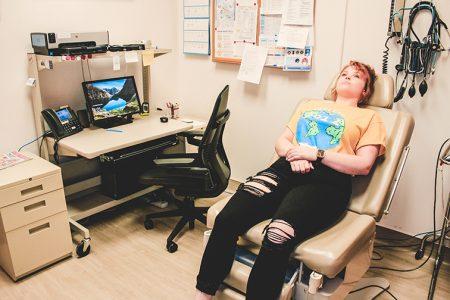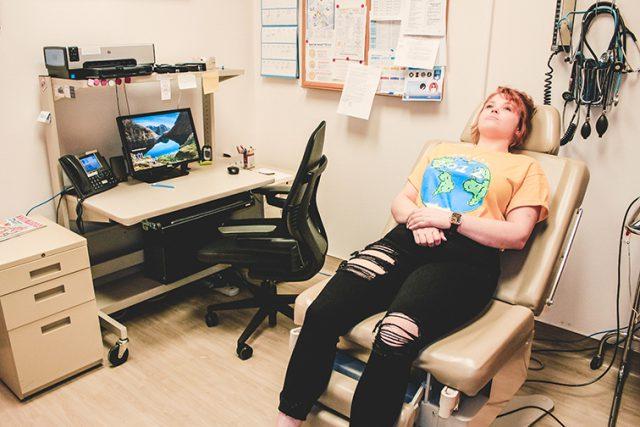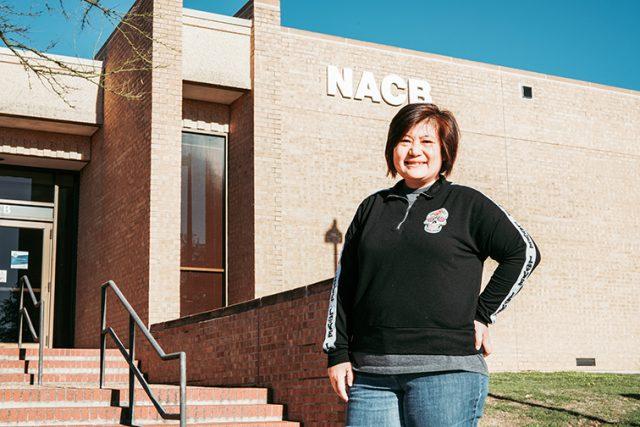| January 29, 2020 | Krissia Palomo | campus editor |
|---|

New health services are in motion on all campuses after having been suspended last fall, and South Campus president Peter Jordan said a team goal is to have health insurance available to students through the college. This could be huge for TCC students.
Students who may have chronic conditions who could benefit from this, as well as students who may not otherwise proactively treat a serious illness like the flu, he said.
The cost of this health insurance option could be funded through the cost of tuition or financial aid.
“Many colleges across the country, especially those with residential facilities or have international students require that they have health insurance,” Jordan said. “They sometimes have arrangements with entities that provide student health insurance policies.”
NW student Ja’Lun Morris had used health services on two campuses for first aid before the new changes took place. He said he had full access to health insurance benefits through his mother’s employer, but losing his coverage would leave him with no affordable access to healthcare.
“Having health insurance through the college could save me in that situation,” Morris said.
Jordan said that the next few months of this project will continue to revolve around re-imagining TCC’s health and wellness philosophy, as well as fashioning an agenda for the future.
All campuses’ health professionals can no longer give out any over-the-counter medications, NE health services RN Tammy Etter said, but many services are still available to students at health services on all campuses.
“We can do vital signs, take blood pressure, temperature and respiration,” Etter said. “We can talk to people and give out health resources.”
Jordan explained that personnel changes prompted the reassessment.
“Nurses are allowed to provide urgent and emergent care, such as first aid, only with standing delegation orders,” Jordan said.
The order is something that must be provided to a nurse from the doctor in charge. This also means the college is required to have a medical director who oversees the nurses, which health services lacks at this time.
In the absence of a medical director, services by nurses needed to be paused until the position could be filled once again.
“The plan is to engage a medical director who will supervise the nurses in providing limited, supportive emergent care as needed,” Jordan said.
The Well-Being Work Team was launched Jan. 14 to begin work on the new changes at health services. This diverse team will combine the efforts of health services and mental health counseling, emphasizing proactive wellness and addressing issues such as food and housing insecurity, Jordan said
The team has 17 staff members whose mission addresses the long-term medical needs of students. This program will partner with the UNT Health Science Center to launch a symposium centered on well-being.
“The idea is to help us shift the paradigm from a focus on being reactionary, responding to accidents or urgent situations, to being more proactive about helping students, faculty and staff think more in terms of well-being,” Jordan said.
“I anticipate that agenda will include educational strategies, staffing models and partnership opportunities that support well-being across the college,” Jordan said.
“Having health insurance through the college could save me in that situation,” Morris said.
Jordan explained that the next few months of this project will continue to revolve around re-imagining TCC’s health and wellness philosophy, as well as fashioning an agenda for the future.
All campuses’ health professionals can no longer give out any over-the-counter medications, NE health services RN Tammy Etter said, but many services are still available to students at health services on all campuses.
“We can do vital signs, take blood pressure, temperature and respiration,” Etter said. “We can talk to people and give out health resources.”
Jordan explained that personnel changes prompted the reassessment.
“Nurses are allowed to provide urgent and emergent care, such as first aid, only with standing delegation orders,” Jordan said.
The order is something that must be provided to a nurse from the doctor in charge. This also means the college is required to have a medical director who oversees the nurses, which health services lacks at this time.
In the absence of a medical director, services by nurses needed to be paused until the position could be filled once again.
“The plan is to engage a medical director who will supervise the nurses in providing limited, supportive emergent care as needed,” Jordan said.
The Well-Being Work Team was launched Jan. 14 to begin work on the new changes at health services. This diverse team will combine the efforts of health services and mental health counseling, emphasizing proactive wellness and addressing issues such as food and housing insecurity, Jordan said
The team has 17 staff members whose mission addresses the long-term medical needs of students. This program will partner with the UNT Health Science Center to launch a symposium centered on well-being.
“The idea is to help us shift the paradigm from a focus on being reactionary, responding to accidents or urgent situations, to being more proactive about helping students, faculty and staff think more in terms of well-being,” Jordan said.
“I anticipate that agenda will include educational strategies, staffing models and partnership opportunities that support well-being across the college,” Jordan said.

































